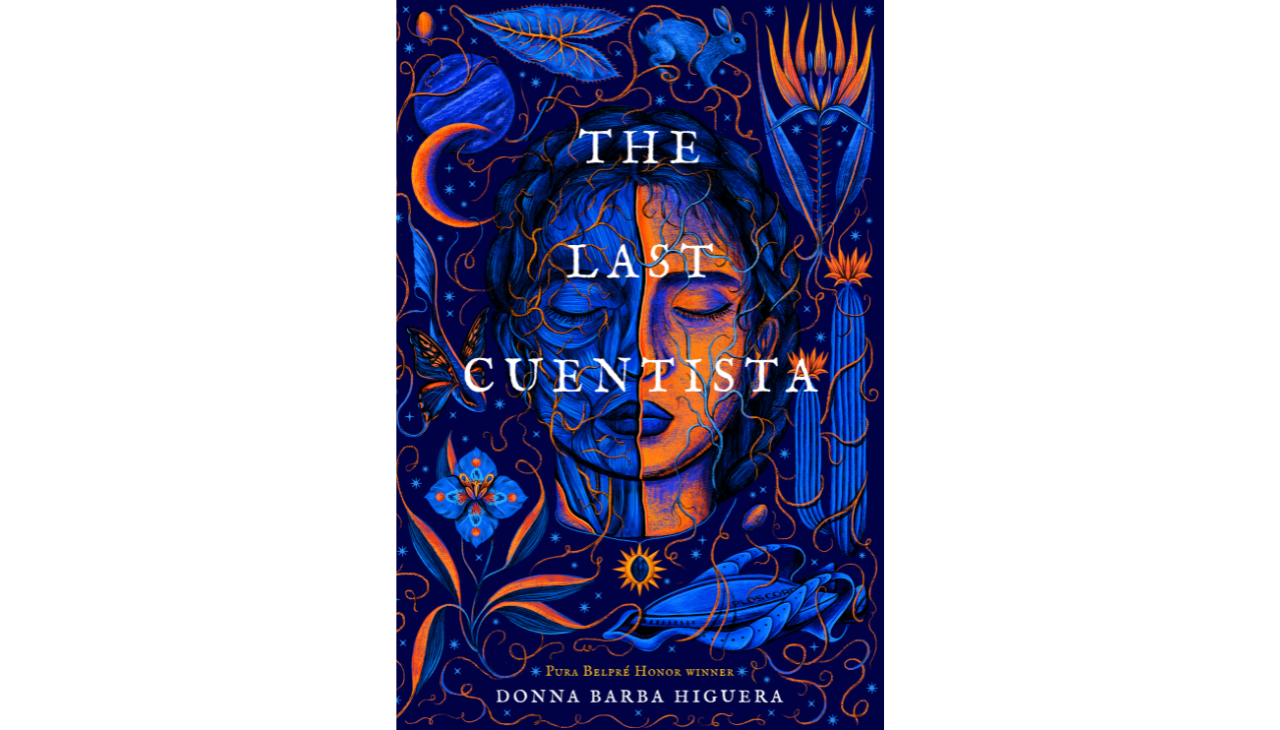
Donna Barba Higuera, author of “The Last Cuentista”
Donna Barba Higuera grew up in a tiny desert town in Central California surrounded by agricultural and oil fields. Rather than wrangling dust devils, she’d spend recess squirreled away in the janitor’s closet with a good book. Her favorite hobbies were calling the library’s dial-a-story over and over again and sneaking into a restricted pioneers’ cemetery to weave her own spooky tales using the crumbling headstone for inspiration.
Donna lives in Washington State with her husband, four kids, three dogs and a frog.
Her books include Lupe Wong Won't Dance, El Cucuy Is Scared, Too!, and The Last Cuentista, and have won awards including: the Newbery medal, both Pura Belpré medal and honor, PNBA best book of the year award, and the Sid Fleischman award for best children's humor book of the year.
The Last Cuentista is a beautiful middle grade story of a young Latina who must leave a no longer inhabitable Earth and learns the importance of adapting. Although this is a middle-grade dystopian novel, it is poetically magical while honoring the storytelling of our ancestors and Mexican folklore. The story is fun, vibrant, and relatable. Captivating the reader to partake in a voyage of unforgettable cuento (which means ‘story’ in English of what it means to adapt, believe, and find one’s self.
Donna’s Middle Grade and Picture books reinvent history, folklore, and or her own life experience into compelling storylines. She still dreams in Spanglish.
To read more about The Last Cuentista and the Journalism Lab for Higher Education Top 5 Books for College Students click here.
I had the pleasure to interview Donna Barba Higuera and ask some questions regarding The Last Cuentista. Here is our conversation:
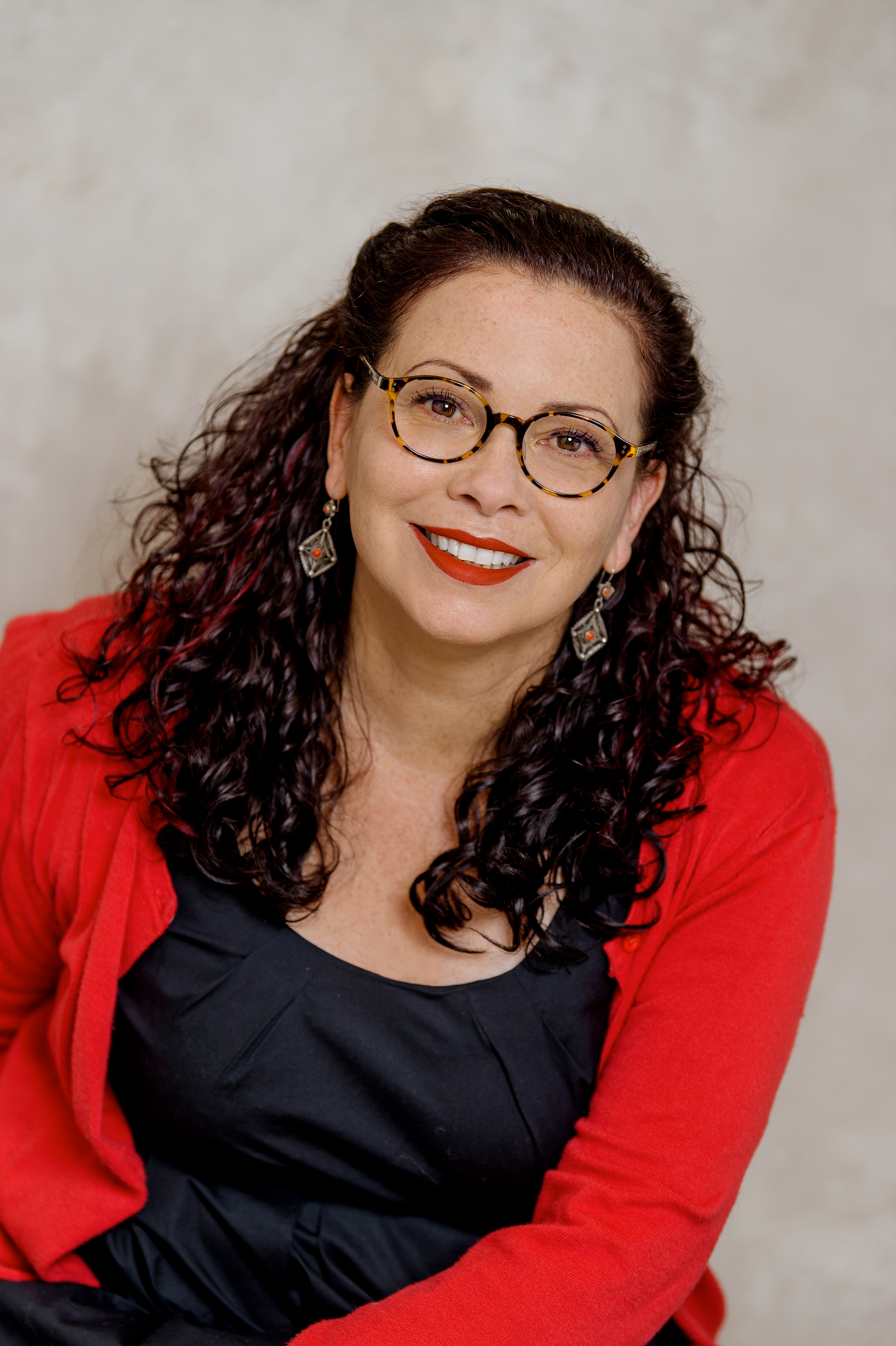
What does the title mean and how important was it to use Spanglish?
A lot of times people will ask me about being mixed race and using Spanglish and they will say ‘your characters are biracial and you use spanglish,’ and I don’t do it on purpose. That’s what comes out. When I wrote The Last Cuentista, people who speak Spanish realized that words often have nuance and there’s some words that translate to English kind of the same; words like ‘narradora’ and ‘cuentista’ both kind of mean storyteller. But ‘cuentista’ also means someone who is maybe twisting the truth a little bit or is a little bit more flamboyant in their storytelling. I felt that that needed to be the word.
Also, when I was writing the book I incorporated a lot of Spanish and Spanglish. I kind of switch back and forth which is often when I speak Spanish to friends or family. That’s exactly how I speak. If there’s a word that fits better, then I will use it. But of course, I can only do that with certain people who understand both languages.
Where do you get your information or ideas for your books?
Everywhere. They hunt me. The book that I’m work on right now, I was driving to working and listening to NPR and there was a news article talking about drones—and my imagination just went to the extreme. [For] The Last Cuentista, there was a writing prompt that I wrote from very long ago. I was trying to look it up, it was either 2012 or 2015, and it was to take a traditional fairytale and make it sci-fi. I love fairytales. I love folklore mythology. But I love sci-fi. So it was kind of this writing prompt of my dreams. But I also thought there are a lot of fairytales that get too much air time, like Cinderella and Snow White. I chose Princess and the Pea because a lot of people don’t know this fairytale—and it always annoyed me. The story is about a Queen searching for a delicate princess for her son so she tests these girls to come to the palace by putting a pea under a stack of mattresses and finally there’s a girl who has a horrible night sleep because she’s so delicate she feels the pea all night. And I was like ‘Oh my gosh, who wants her as a princess,’ we need someone stronger. So I rewrote this story about a girl who was traveling to another planet and hundreds of miles away and she didn’t sleep at all, not because she was delicate, but because what they were trying to push off on her didn’t work. She was not going to let people take over her body. But when she woke up she found society had changed and the things she loved and cherished were no longer there. It just hunted me. It was a short story— only two or three pages, but years later I thought this was super creepy. But what if I created a middle grade and what if this girl doesn’t fall asleep because ‘her pea’ failed just like it did in this other book.
What do you think makes a good story?
I think, for myself, a good story is one in which you have to connect with the character and feel [what] the character is feeling. Even if the character is someone very different from yourself, if you could put yourself in their shoes and live the story with them that makes a good story. Also, one that can make you laugh but also make you cry—and make you feel, like really feel things viscerally with the character, that’s a good story. Make you afraid.
What comes first for you, the plot or the characters and why?
That’s interesting because most people have one way or the other. For me, it’s actually been both. In this book it was that short story, so I would say it was kind of a plot. In the short story the character—we didn’t know much about. Even in the short story she was Latina, but we didn’t know anything about her. It was a plot driven short story and that’s kind of the idea of it. I didn’t have Petra as a character until I started writing it. But in Lupe Wang Won’t Dance a character came first. Lupe is probably the strongest and funniest character but is contemporary. It is actually easier for me to write character driven novels because if I know the character right away, I can put him in any situation. When you do a plot driven novel, if something doesn’t work out quite right, you have to rewrite—depending on the point where you had to restart rewriting, the book can go in a different direction; it's much harder to do. But it's interesting because now that I know Petra really well and I can put her in any situation as well, so it would be much easier if I write more about Petra.
Would you say Petra is one of those characters that you can relate to the most, that you have written about?
Yes. I think most of it is from what she is passionate about. What she loves. I would say the opening scene where is in the desert and she is with her grandmother, and Lita is telling her one last story before she goes, that scene was so easy to write but also really difficult because it was me with my grandmother, and it was really difficult in the sense that it was really emotional. When I wrote that scene I was this mess—I was just crying. In a way it was easy and it was good because I got to be with my grandmother again. But it was also bittersweet because I missed her so terribly. Petra is probably who I [relate to the most] because of her relationship with her family and everything is so much a part of who I am.
CONTENIDO RELACIONADO
What is a significant way your book has changed since the first draft?
A lot. One thing that was not there in the first draft, and I’m embarrassed to say this—because I thought it would be too weird in the first draft when Petra tells a story, she tells that she is telling a story. I think that was my own insecurity of ‘who am I to put these stories in this book with science fiction. Am I even allowed to do that?’ My editor is all like we are not asking anybody for permission, you are going to tell these stories as if you are Petra and she is telling them to these kids. The first draft I didn’t have the stories as they were told to me or how Petra is telling them and I had to show also that as she tells the stories and they progress she starts off not so great.
What inspired the idea of your book?
[The short story inspired the idea of The Last Cuentista], that’s originally what it came from. But I think that the bigger picture of this story also came from things that I see around me and things that probably subconsciously scare me and I felt threatened by it. I have a lot of people ask me ‘oh book banning, did you write this because of what is going on?’ And I actually wrote this book before all of that happened. The funny thing is I think the erasure of stories and books and history in ‘The Last Cuentista’ is probably what I am most afraid of. The fact that is happening now is really just timely and even more frightening because I guess I thought we were beyond all that and is happening again. So I didn’t write this book with that in mind, it's not even ironic, it's just tragic—what’s going on in our world today.
If you could meet your characters, what would you say to them?
I would have no words for Petra. I would just embrace her and give her the biggest hug. This question made me emotional. She is not a real person but in my mind she is. I would just hug her and say be brave. She is brave. You are doing a wonderful job, don’t doubt yourself . Hold on to your stories, of your grandparents, and your ancestors. It's something I tell kids all the time when I go on school visits. Hold on to those stories, of your parents, grandparents, and ancestors because one day you will be really upset with yourself if you don’t—and that they are precious.
What do you need in your writing space to help you stay focused?
I am learning this about myself. I need a low-grade number of distractions. So I’m finding if I’m at home I don’t write as well because there are too many distractions. Writing is a job, is an occupation. So I’m finding that I have to get up and leave my house. I normally go and sit at a coffee shop and have coffee and sit and write because at a coffee shop you are not going to be getting up and down to check what you are making for dinner. There’s always a distraction at home. Lately my writing process is that I get up and go write at a coffee shop for four hours. I come home and I might even go back, it all depends if I’m tired or not. Also, depending on where I am in the process of writing my first drafts. I actually write by hand, so there isn’t the computer as a secondary distraction and I can’t go onto social media. So I sit-down and write the story by hand and then transpose it—by the time I put it in, it has gone through so many edits.
Why should young people cultivate a culture of reading from the time they are in school?
Every single kid needs to connect to something, to stories, and to others in some way. Outside of their own experience. Outside of their own school and their own environment. The only way to do that if they can’t travel the world is through books and to read other people’s stories from all over the world. For myself, I was in this tiny desert town but my librarian gave me tons of books and things from all over the world. So I was able in my mind [to] travel to all those places and become a more empathetic and sympathetic person. That’s why I think kids should start [reading] really young and learning, even down to picture books, learning about other cultures and places so by the time they’re a certain age entering adulthood, they are better humans. They’re better people because they understand others and are more empathetic.



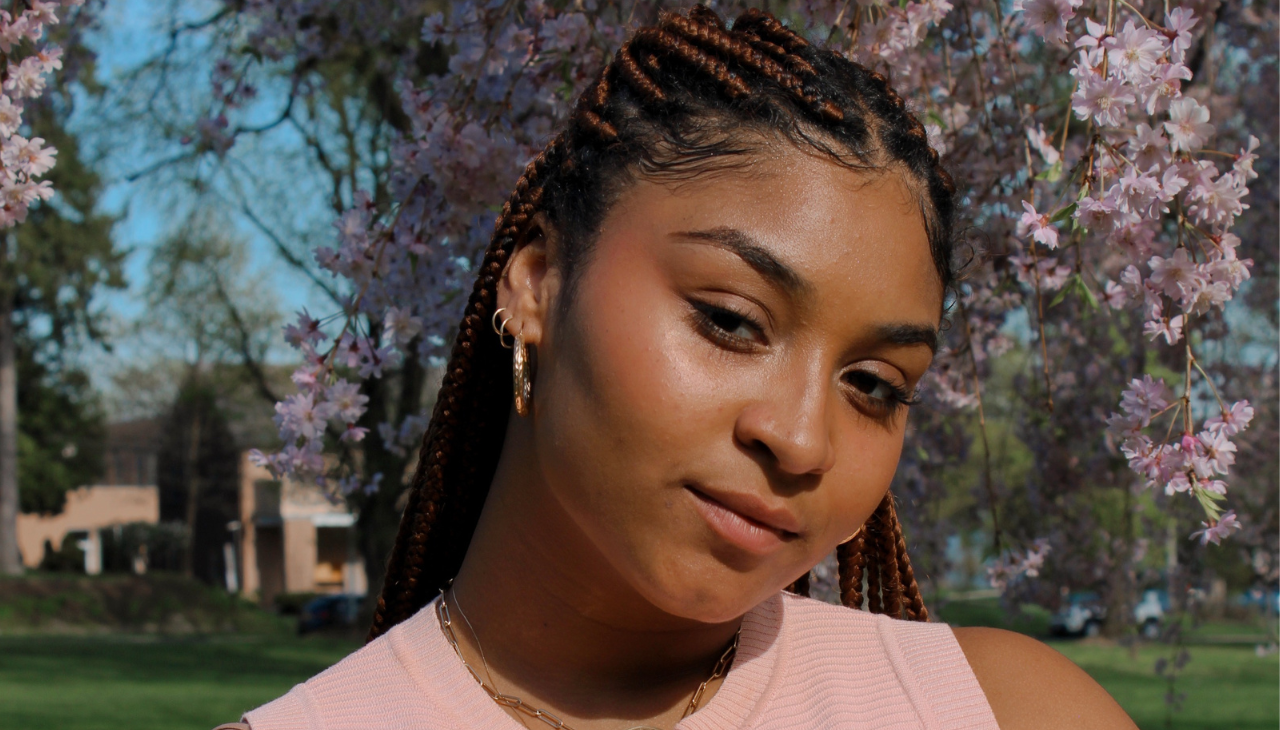


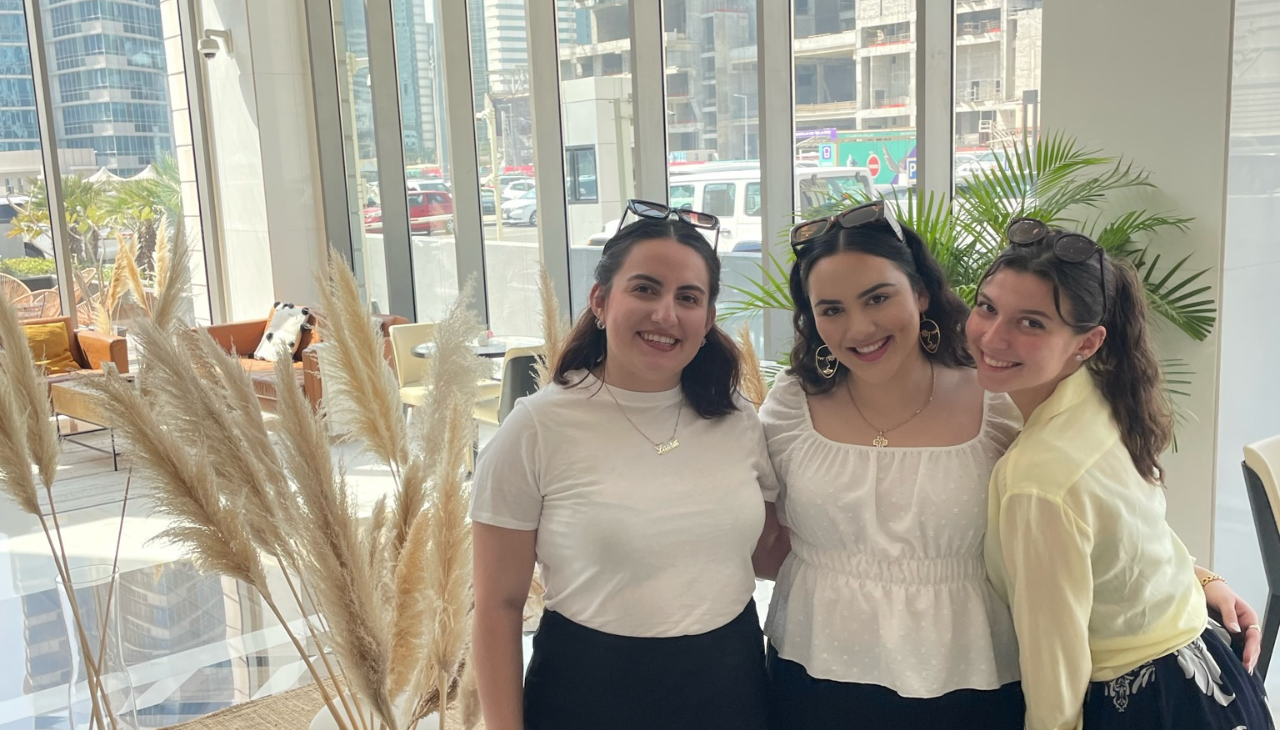
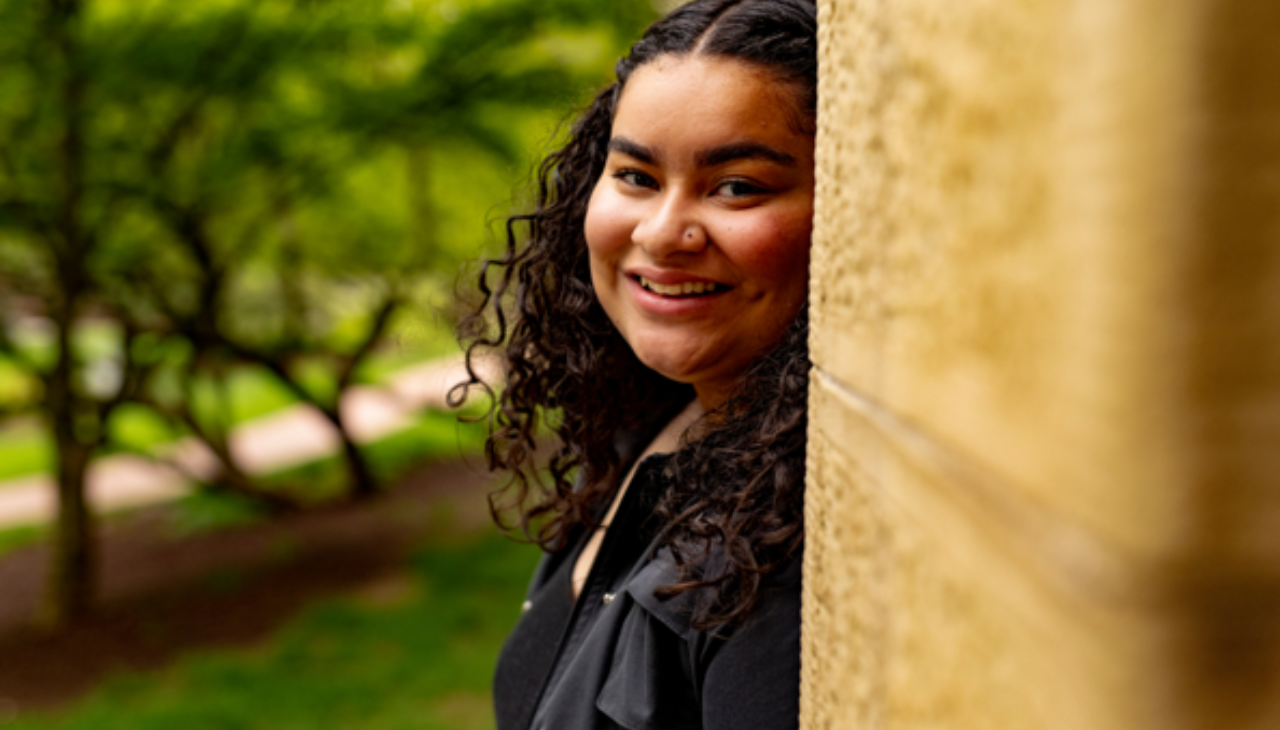
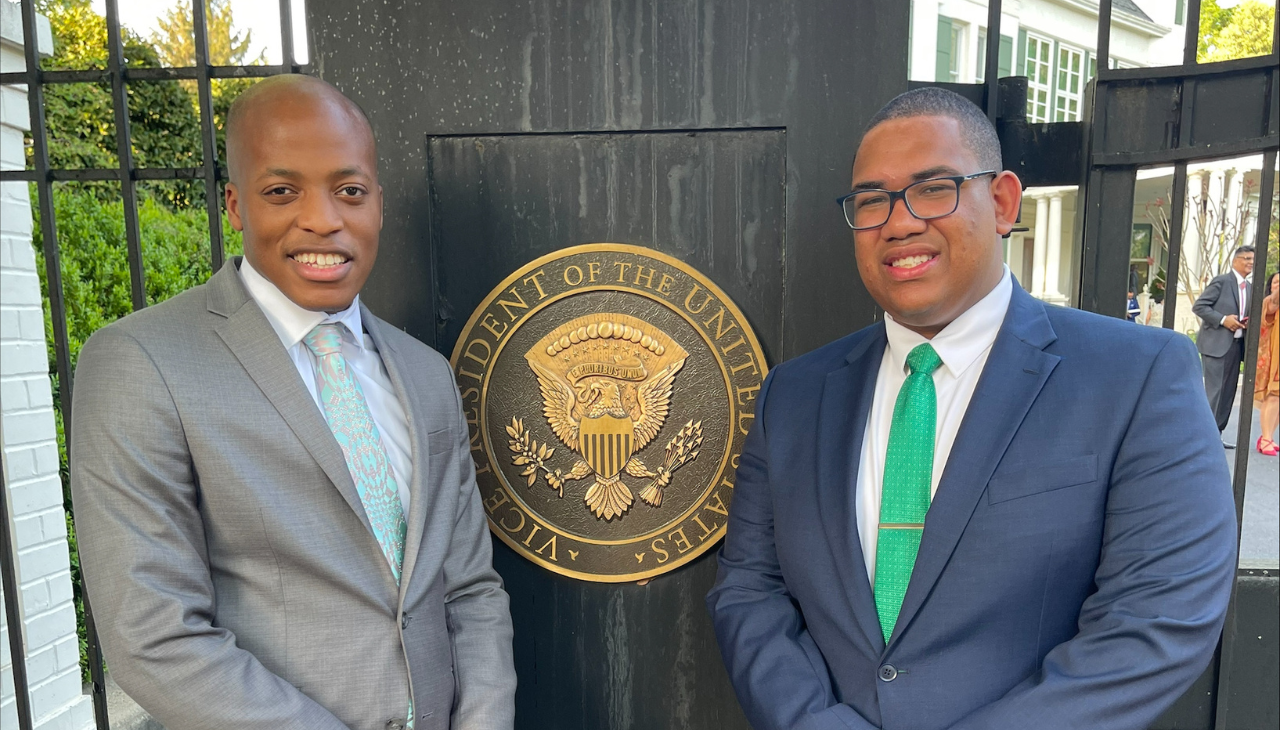

DEJE UN COMENTARIO:
¡Únete a la discusión! Deja un comentario.